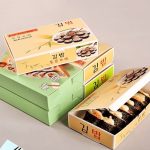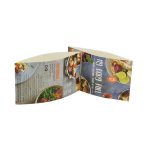In an era where climate change headlines dominate our news feeds and environmental consciousness has become more than just a trend, a quiet revolution is taking place in the world of packaging. Eco-friendly boxes and bags are no longer niche products for the environmentally devout—they’ve become powerful statements about brand values, consumer responsibility, and our collective future. From recycled cardboard boxes to compostable mailers, sustainable packaging is reshaping how businesses operate and consumers shop, creating a ripple effect that extends far beyond the unboxing experience.
The environmental impact of traditional packaging is staggering. Conventional plastic bags can take up to 1,000 years to decompose in landfills, while Styrofoam containers essentially never break down. Meanwhile, the production of virgin paper packaging contributes significantly to deforestation. These sobering realities have sparked a packaging renaissance, with innovative companies developing alternatives that are as functional as they are environmentally responsible. The shift toward eco-friendly packaging represents one of the most tangible ways businesses and consumers can reduce their environmental footprint immediately.
Modern eco-friendly boxes and bags come in an impressive variety of materials and designs. Recycled cardboard and paper products lead the way, giving new life to materials that would otherwise end up in landfills. But the innovation doesn’t stop there—plant-based plastics derived from corn starch or sugarcane break down completely in industrial composting facilities. Mushroom packaging, grown from agricultural waste and mycelium, offers remarkable protective qualities while being fully biodegradable. Even seaweed and algae are being transformed into durable, edible packaging solutions that disappear without a trace.
Beyond the environmental benefits, sustainable packaging presents a compelling business case. Studies consistently show that consumers increasingly prefer brands that demonstrate environmental responsibility, with many willing to pay a premium for sustainably packaged products. Companies embracing eco-friendly packaging often discover unexpected cost savings through optimized packaging sizes, reduced material usage, and improved shipping efficiency. The unboxing experience itself becomes a marketing opportunity when packaging reflects a brand’s commitment to values that resonate with modern consumers.
The transition to sustainable packaging does present challenges that require creative solutions. Concerns about durability, moisture resistance, and cost competitiveness have prompted manufacturers to develop increasingly sophisticated alternatives. Water-based coatings now provide moisture protection without chemical contaminants, while advanced folding techniques create structural strength without additional materials. As production scales up and technology advances, the price gap between conventional and eco-friendly packaging continues to narrow, making sustainability increasingly accessible to businesses of all sizes.
Looking toward the future, the evolution of eco-friendly packaging shows no signs of slowing. Smart packaging incorporating biodegradable sensors could soon help reduce food waste by accurately monitoring freshness. Self-fertilizing packages containing seeds in their material might transform waste into greenery when planted. The circular economy model is gaining traction, with companies establishing take-back programs where packaging is returned, refurbished, and reused multiple times before being recycled. These innovations point toward a future where packaging contributes positively to environmental cycles rather than depleting resources.
Every time we choose a product in recycled cardboard over plastic blister packaging or select a compostable bag instead of a conventional plastic one, we cast a vote for the world we want to inhabit. Eco-friendly boxes and bags represent more than just containers—they embody a philosophy of mindful consumption and responsible stewardship. As this movement grows from niche preference to industry standard, we move closer to a world where beautiful, functional packaging leaves no permanent mark on our planet, proving that the most meaningful revolutions often come in thoughtfully designed packages.




Leave a Message